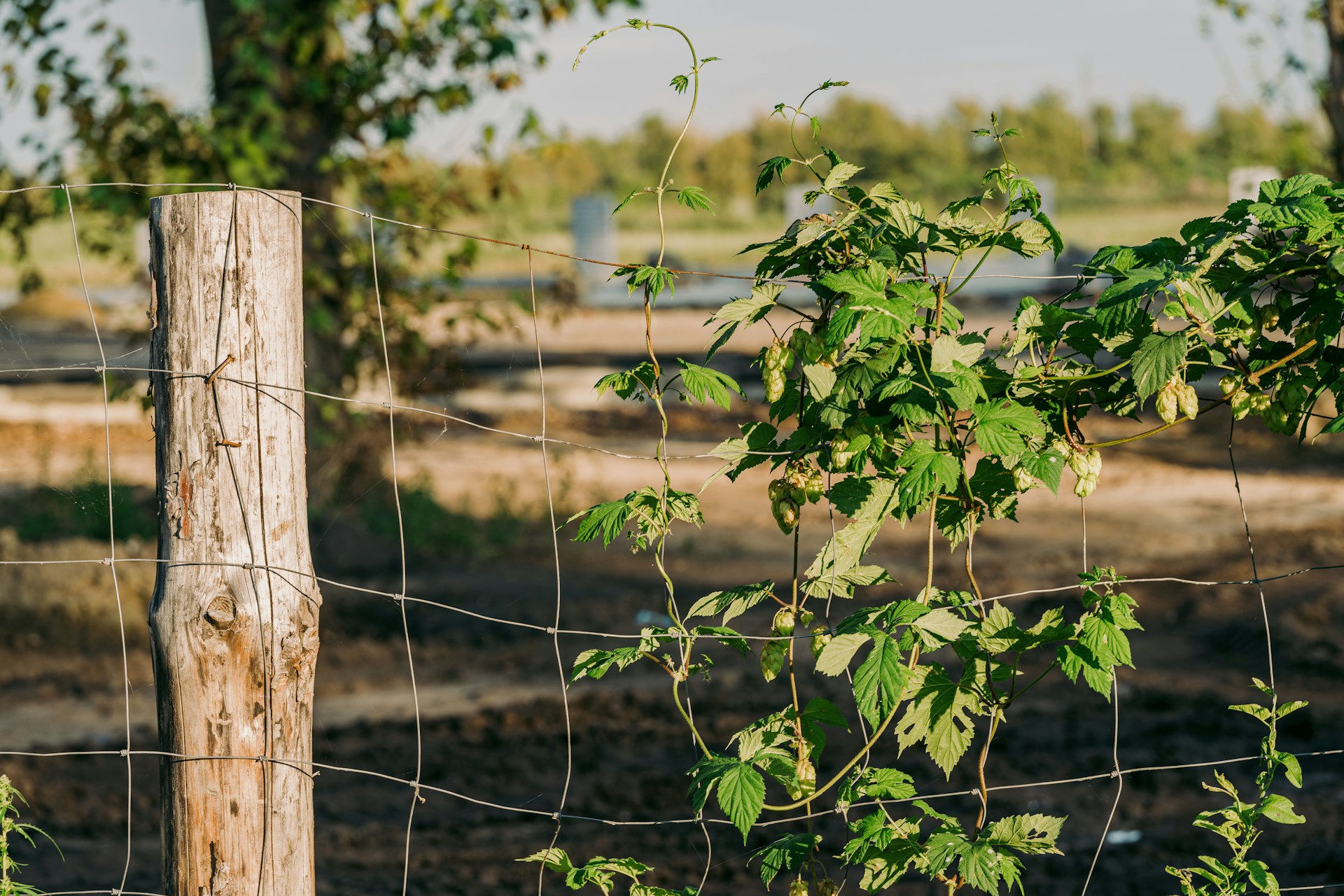This project will generate genetic data for UK hop varieties to identify DNA regions controlling resilience.
The beer industry’s growth, driven by demand for unique, high-impact aroma hops, has made developing resilient, high-quality hop varieties a priority. Successful hop cultivars must combine exceptional brewing qualities with resilience to biotic and abiotic stresses, including extreme temperatures and low water supply, ensuring stable yields over multiple years. Breeders face the challenge of integrating multiple desirable traits into superior varieties.
Traditional breeding relies on observing traits like yield, disease resistance, and aroma, which is time- and labor-intensive. For example, screening for Verticillium wilt resistance requires infection tests on mature plants, while environmental stability assessments involve repeated trials across locations and years. However, traits are influenced by both genetic and random factors, limiting traditional methods to observable variations. Genomic tools offer a faster, more precise alternative by identifying DNA linked to key traits, enabling breeders to select plants based on genetic potential rather than physical traits.
Wye Hops’ breeding collection contains diverse lines with variations in disease resistance and other traits. This project will generate genetic data for these varieties to identify DNA regions controlling resilience. By screening for desirable DNA, breeders can combine multiple resilient traits into superior hop varieties. This environmentally friendly, natural breeding approach will produce hops better adapted to environmental challenges, benefiting UK hop growers with improved agronomy and brewing qualities.
Academics involved: Dr. Helen Cockerton | Businesses involved: Wye Hops Ltd, The British Hop Association, LGC Genomics Ltd, The Hop Plant Company Ltd
